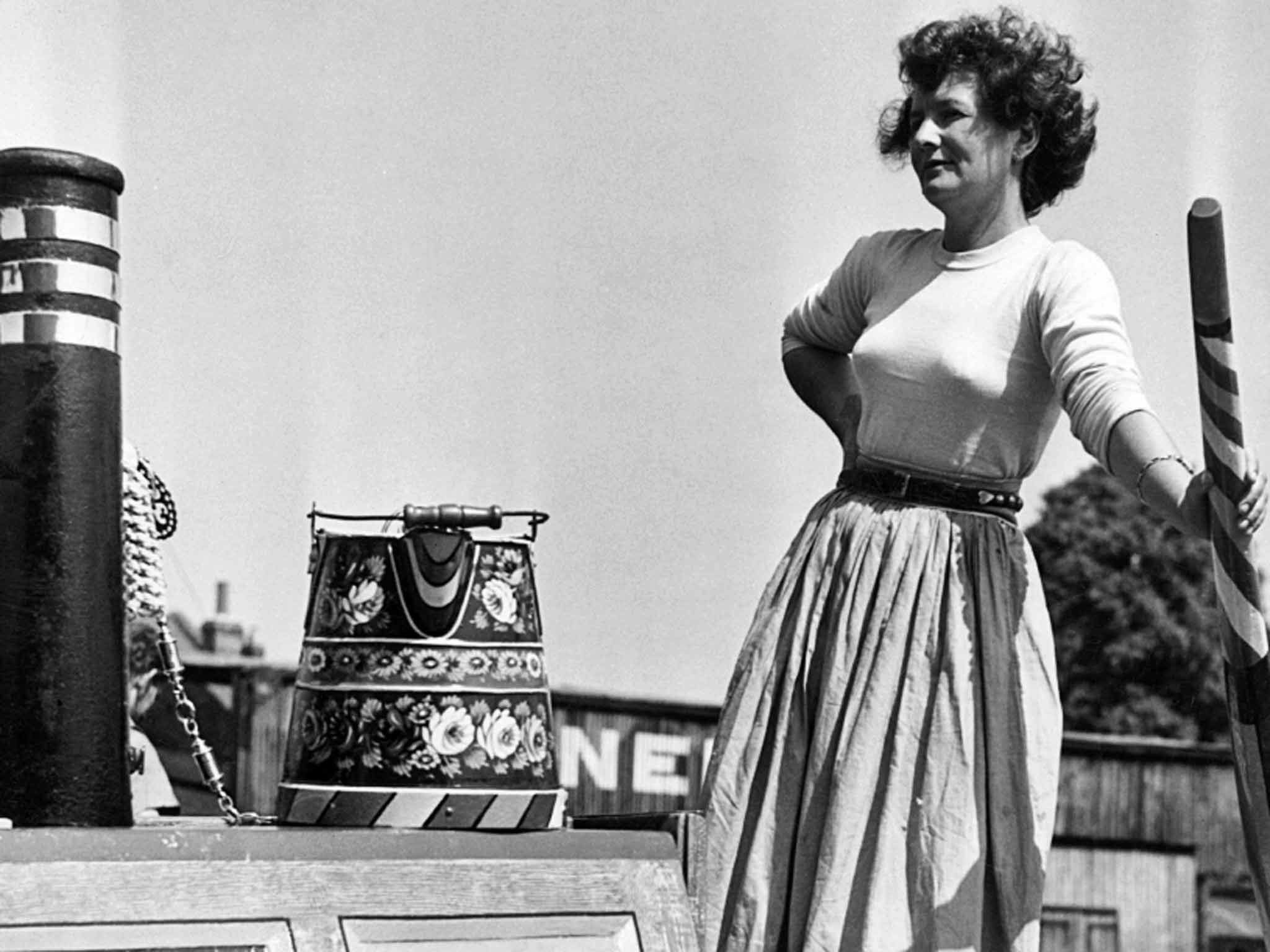Sonia Rolt: Grande dame of Britain's canals who worked tirelessly conserving waterways and the nation's industrial heritage

The continued existence and ever-improving condition of Britain's canal network owes a considerable debt to the tireless campaigning undertaken by Sonia Rolt and her husband Tom since the mid-1940s, when they established the Inland Waterways Association.
Sonia South was born in 1919 in New York to British parents and educated at Farnborough Hill convent school in Hampshire, before training as an actress at the London Theatre Studio. When war broke out she worked briefly in a factory. "We were all employed under the government's directed labour programme and I was at the Hoover factory at Perivale working on the insides of Lancaster bombers," she recalled. "I was quite bright at it, actually."
While there she saw a notice seeking women to work on the waterways. "Women may volunteer for the carrying of goods by canal," ran the ad. She had no previous experience of working on the water but took to the job with verve, sparking the passions for canal boats and for industrial heritage which would define her life, "I think it was then that I began to look at buildings in a very serious way. I looked at the modest ones, the working ones, and I saw beauty in them. Going into Birmingham, at the end of some dark, blackened channel you'd see flaming red and men working with shovels. What I saw was highly industrial and totally alive."
Although light-heartedly nicknamed "the Idle Women", after the IW (Inland Waterways) logo on their uniforms, this band of 45 women performed a vital function in keeping Britain's canals open and ensuring that materials and fuel could still be transported around the network. She recalled this year: "After the war most people left but I stayed because I was going to marry into the community of the boatmen and so I had a wonderful but very short marriage to a canal boatman [George Smith], who couldn't read or write..."
She met her second husband, Tom Rolt, in 1945 at a showing of Painted Boats, Charles Crichton's film drama about the lives of families on Britain's waterways. Tom was a recognised authority on canal boat life, having published his influential first book, Narrow Boat, the previous year. He would go on to write more than 30 volumes on waterways, railway and industrial history.
Sonia had already been involved in campaigning to improve the conditions of boat-dwellers and working with Tom she helped establish the Inland Waterways Association in 1946. The aims of the charity, of which she later became vice-president, are towards the conservation, use, maintenance and restoration of inland waterways for public benefit.
The couple moved in 1954 to a 14th-century house at Stanley Pontlarge, Gloucestershire, where her husband had grown up. "We arrived to live here with paraffin lamps, no heating except for a coke stove and open fires," she recalled. "Many things were failing including the big roof, whole sections of which would slip with a clattering roar into the lane."
When a renovation grant from the local authority was not forthcoming, their friend David Nye, of the Society for the Protection of Ancient Buildings, made a successful application which helped cover half the re-roofing costs. They became active members of SPAB, adding the care and conservation of historic buildings to their campaigning portfolio.
In 1997 Rolt published A Canal People: The Photographs of Robert Longden. Her introduction explains an admiration for Longden's photographs and the memories they brought back of her own experience on the water. "I have been haunted by these pictures for almost five decades, and not only because I was involved in the life that is depicted in them," she wrote. "I hope here to be able to tell something of the story of this haunting and of its resolution."
In 2008 a plaque was unveiled at the National Waterways Museum at Stoke Bruerne, Northamptonshire, on the Grand Union Canal, commemorating the women who had served on the canals during wartime. She attended the unveiling ceremony, together with three of the other surviving Idle Women. British Waterways' chairman, Tony Hales, spoke of the importance of their role: "Keeping cargo moving along the waterways during the war was no easy task. The young ladies had to deal with limited rations, difficult living conditions and sometimes appalling weather."
Since Tom's death in 1974 she had been active in keeping his literary legacy alive. Nine of his titles were republished in 2010, the centenary of his birth, allowing a new generation to enjoy his seminal works on Britain's industrial history. That year also saw her awarded the OBE. Aged 95, she had continued as the vice-president of the IWA, which at its AGM two months ago presented her with its Outstanding Achievement Award. Neil Edwards, Chief Executive of the IWA, said: "Sonia Rolt was a pioneer for the canals in many ways; she was a highly respected vice-president of the Inland Waterways Association and contributed enormously over a period of 70 years. Her constant good humour and undimmed enthusiasm for bringing the waterways alive will be greatly missed."
Sonia South, writer and conservation campaigner: born New York 15 April 1919; married firstly George Smith (marriage dissolved), secondly Tom Rolt (died 1974; two sons); OBE 2010; died Stanley Pontlarge, Gloucestershire 22 October 2014.
Join our commenting forum
Join thought-provoking conversations, follow other Independent readers and see their replies
Comments